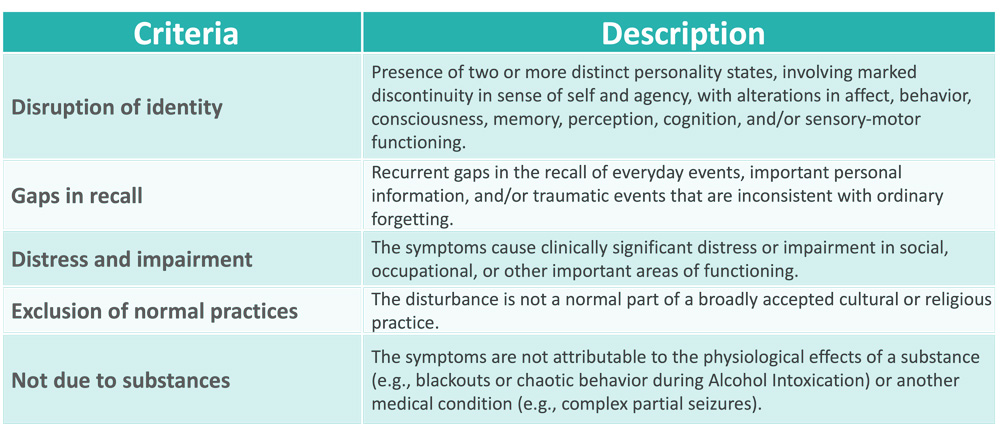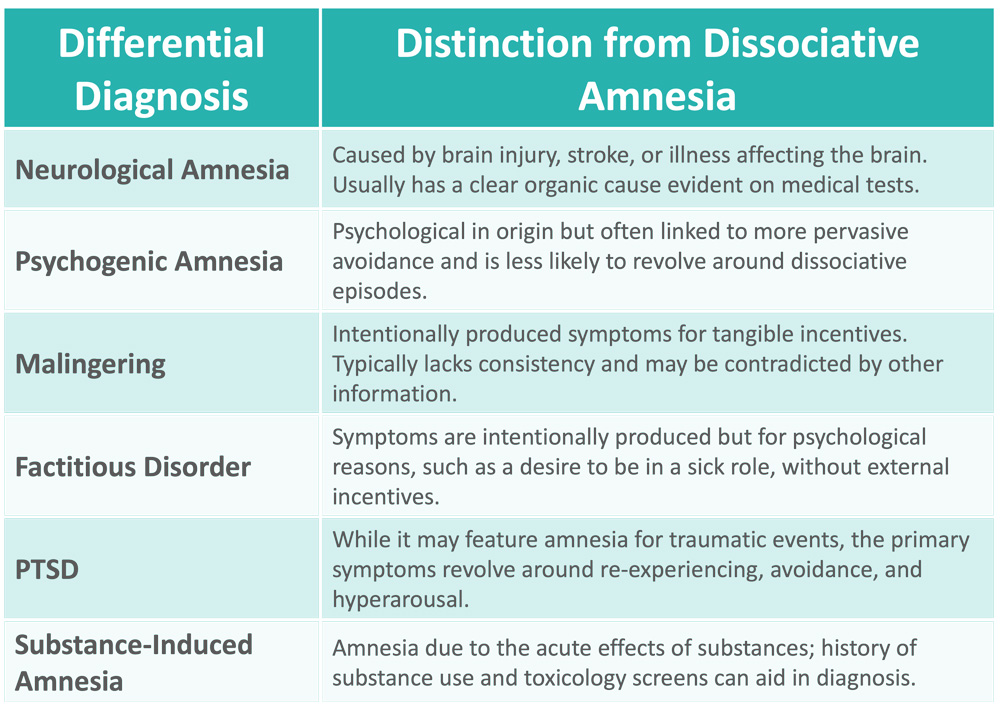Dissociative Disorders
Dissociative disorders encompass a spectrum of conditions characterized by a disconnection and lack of continuity between thoughts, memories, surroundings, actions, and identity. This chapter provides a comprehensive overview of these disorders, ensuring that psychology residents are well-prepared for the In-service exam and ABPN Psychiatry Boards exam.
By the conclusion of this chapter, readers will have a robust understanding of the various dissociative disorders, their clinical presentations, differential diagnoses, and treatment options.
Dissociative identity disorder
- Characterized by the presence of two or more distinct personality states (alters) that recurrently take control of the individual’s behavior.
- Patients experience sudden and dramatic shifts in their mood, personality, behavior, knowledge, or memory which are often triggered by stress or reminders of trauma.
- Associated with memory gaps for everyday events, personal information, or traumatic experiences.
- Usually linked to a history of childhood trauma or abuse and have concurrent post-traumatic stress disorder.
- Differential Diagnosis: Schizophrenia, borderline personality disorder, seizure disorders, and malingering.
- Treatment: Psychotherapy (e.g., trauma-focused therapy, cognitive-behavioral therapy).
Note
In children, the symptoms of dissociative identity disorder are not better explained by imaginary playmates or other fantasy play.
Dissociative amnesia
- Inability to recall important autobiographical information, usually of a traumatic or stressful nature, that is inconsistent with ordinary forgetting.
- Example: A 30-year-old man is amnestic to child abuse he experienced when he was a child.
- Subtypes: Localized (specific event), selective (some details), generalized (entire life), and systematized (specific category).
- Treatment: Cognitive-behavioral therapy, and hypnotherapy.
- The prognosis is generally good, with many individuals recovering their memory over time.
Log in to view the remaining 60-90% of page content!
New here? Choose an account!
1 Month Plan
Full Access Subscription
$68
$
48
49
1 Month -
Access to all chapters
-
Access to all images and cases
-
Access to all flashcards
-
Access to Full Question Bank
3 Month Plan
Full Access Subscription
$159
$
73
49
3 Months -
Access to all chapters
-
Access to all images and cases
-
Access to all flashcards
-
Access to Full Question Bank
1 Year Plan
Full Access Subscription
$446
$
195
49
1 Year -
Access to all chapters
-
Access to all images and cases
-
Access to all flashcards
-
Access to Full Question Bank
Popular
Loading table of contents...
Loading table of contents...



